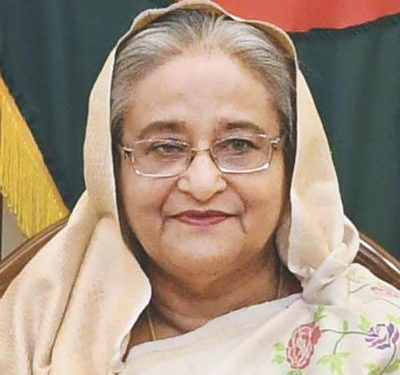Dhaka: Bangladesh’s International Crimes Tribunal Thursday issued arrest warrants against former prime minister Sheikh Hasina, who was ousted after student-led protests in August, and 45 others for alleged crimes against humanity.
The warrants against Hasina, 77, and others, including her party Awami League’s top leaders, were issued on the first day of the judicial proceedings begun by the re-constituted tribunal, Dhaka Tribune newspaper said.
The Tribunal, led by its chairman Justice Md Golam Mortuza Majumdar, passed the orders after the prosecution filed two petitions seeking arrest warrants, Chief Prosecutor Muhammad Tajul Islam was quoted as saying by the Daily Star.
The ICT also directed the authorities concerned to produce Hasina and 45 others before it by November 18.
So far more than 60 complaints of enforced disappearance, murder and mass killings have been filed at the ICT against Hasina, other leaders of her Awami League party and the 14-party alliance, journalists and former top officials of law enforcement agencies.
Following unprecedented anti-government protests over a controversial quota system in government jobs that peaked August 5, Hasina resigned as prime minister and fled to India and is currently believed to be living at an undisclosed location there.
Hundreds of people were killed in Bangladesh in the incidents of violence that erupted across the country following the fall of the Hasina government, taking the death toll to more than 1,000 since the massive protest by students against a controversial quota system in government jobs first started in mid-July.
After taking over August 8, Bangladesh’s interim government said it would try in the International Crimes Tribunal those involved in the killings during the mass movement of the students against the Hasina-led government.
Hasina faces almost 200 cases mostly for murders during the mass student protests.
Advocate Tajul Islam, the chief prosecutor of the tribunal, said on Sunday that Interpol’s assistance would be sought to bring back fugitives, including Hasina.
After the interim government was formed, ICT’s judges, prosecution team and investigation agency appointed by the previous government, had stepped down and the body was re-constituted recently.
The interim government has not ruled out seeking Hasina’s extradition.
Chief Adviser of the interim government Muhammad Yunus, in an interview to PTI in September, had said Hasina making political remarks from India is an “unfriendly gesture,” and asserted that she must remain silent to prevent the discomfort to both countries until Dhaka requests her extradition.







































